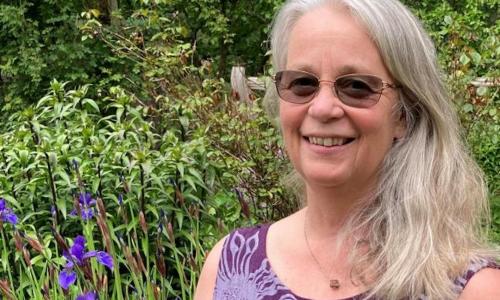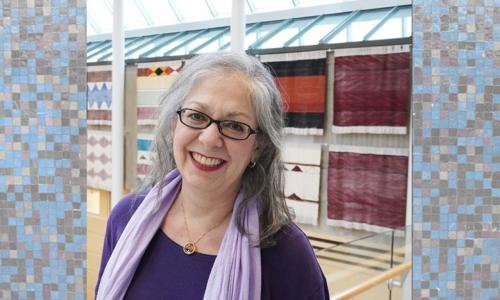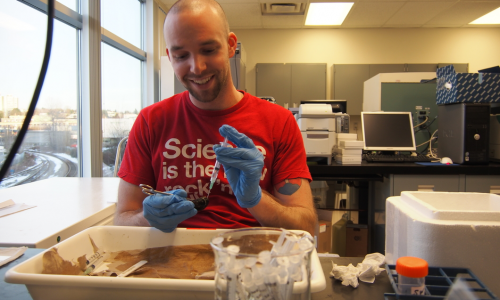
Why is understanding sexual violence important as a graduate student? Sexual Violence is an umbrella term that includes sexual assault, sexual harassment, stalking, taking photos without someone’s consent and more. Sexual violence is not strictly an undergraduate student problem, and campus-based sexual violence continues to pose an issue at the graduate student level. It is important for sexual violence support services and policies to address the needs of all students, not just those seen as being most at-risk. Graduate students are embedded in their programs and the University and have complex and unique needs as a result of their status and multiple roles.
Unfortunately, there is a lack of current research considering graduate student experiences with sexual violence and their unique needs in regards to resources and support options. While the recent media coverage on the topic of sexual violence at universities and colleges has brought the topic into the spotlight (which has increased research interest) the bulk of this attention has been on undergraduate student populations. This focus isn’t entirely surprising, especially given the high incidence rates within undergraduate populations as a whole and in particular during the first few months of classes. It is, however, important to keep in mind that graduate students were once undergraduates themselves and were thus likely exposed to similar experiences as early university and college students. These students may still require support for historical campus-based sexual violence. Additionally, the way in which sexual violence is experienced (and the potential impacts of disclosing or reporting) has the potential to be very different at the graduate level. Such factors may influence how graduate students define and experience sexual violence, as well as how comfortable they feel in accessing services and with the options available to them. When it comes to sexual violence response and barriers to disclosing, there are many unique factors to consider for grad students.
1. Graduate Students Wear Many Hats
One of the most unusual aspects of graduate-level studies is that students often occupy multiple roles. Identities are fluid and overlapping, with individuals in many cases being both students and teachers, supervisors and supervisees, while at the same time conducting their own research. Students are often employed by the University, working in many cases as research and/or teaching assistants and sessional instructors, and thus may have multiple supervisors at any one time. Many students also work for the University outside of their home department, in both academic and non-academic positions. Grad students tend to work more closely with individual faculty members than undergraduates do, both in terms of coursework and supervision. These multiple forms of labour and learning can lead to a great deal of dependence on faculty members and work and research supervisors for continuing and future employment and opportunities.
2. Multiple Roles = Multiple Possibilities for Sexual Violence
Because graduate students occupy such a unique position in the institutional hierarchy, this also results in a distinct risk for sexual violence. Grad students are potentially vulnerable to peer-based sexual violence from other graduate students, power-based sexual violence from individuals who teach and/or supervise them in an academic or professional capacity and from undergraduate students they teach or supervise. Similarly, graduate student perpetrators pose a unique risk to others with potential connection to these groups. Although undergraduate students are possibly at higher risk of student-perpetrated sexual violence, some research indicates that graduate students are more likely to experience faculty-perpetrated sexual violence.
3. Multiple Roles = Increased Possibility of Receiving Disclosures
Grad students who teach also occupy a limbo-like position in the University structure, often serving as a bridge between undergraduates and faculty members. Those of us who work in tutorial or lab settings are able to work with undergrads in small groups, creating greater comfort and familiarity in comparison to large lecture settings. Consequently, students may feel more comfortable contacting us about course - or University-related concerns, including those surrounding sexual violence. In such cases, students in need of accommodation, advice, or resources may prefer to approach their TA rather than their instructor or course supervisor. It is important that graduate students remain informed of resource and support options for several reasons. Being adequately informed is useful to be able to provide students who disclose sexual violence with accurate information on support services and information on how to connect people with services. Additionally, grad students may need to consult these supports if they are feeling impacted by the disclosure.
4. Graduate Degrees are Both High Reward & High Stakes
Graduate students are tied into the University to a greater degree than the average undergraduate. Our degrees are lengthy ones (especially if you’re completing a PhD!), which means a great deal of time and labour investment. The institutional stakes are high for anystudent who experiences sexual violence at the postsecondary level, and decisions made after experiencing sexual violence can have both long-lasting and wide-ranging impacts. These stakes are potentially even higher for those at the graduate level, and the decision to take a leave of absence, to change supervisors or institution, or to abandon a degree altogether become even more costly for advanced students who are so thoroughly linked to an individual institution, department, or field of study.
There is a lot at stake for graduate students when it comes to sexual violence and as SFU’s Sexual Violence and Misconduct policy is continuing to be implemented, it will be interesting to see how it meets the needs of graduate students. The establishment of a formal Sexual Violence Support & Prevention Office is one of the most exciting results of the policy, and I am looking forward to the promise of educational and support opportunities offered by the University.
Beyond the Blog
-
The Sexual Violence Support & Prevention Office (SVSPO) now has it's own blog page. Keep up to date with new blogs on the SVSPO website.
-
Visit SFU's Sexual Violence Support and Prevention Office website to learn more about consent, locate on-campus support and services for Survivors, and keep up to date on upcoming SVSPO initiatives.













